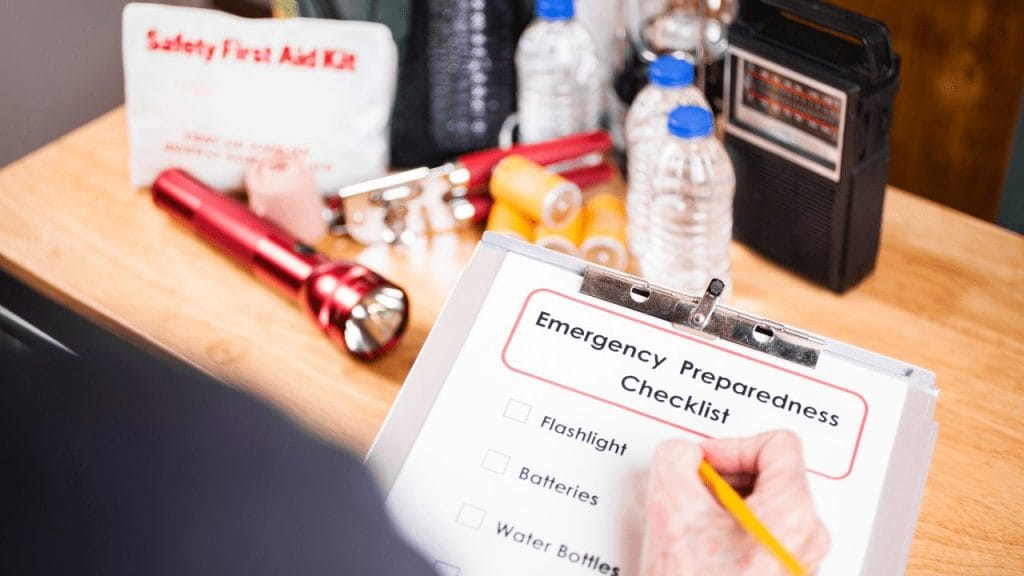Keeping your family safe is a top priority, whether you’re at home, online, or out in public. This guide provides essential tips to enhance family safety in various environments. Especially if you have young children, this article will become your ultimate guide to keep them safe and protected!
Secure Your Home
A secure home is the foundation of family safety. Start by installing a reliable home security system. These systems can alert you to potential break-ins, fires, and other emergencies.
Also, don’t forget to check and replace the batteries in your smoke and carbon monoxide detectors regularly – this should be done at least every six months. If you haven’t already, consider installing carbon monoxide detectors.
Childproof Your Home
For families with young children, childproofing your home is crucial. Remove choking hazards, secure furniture to prevent tipping and install safety gates, window guards and cabinet locks. Keep cords, wires, sharp objects and medications out of reach.
If you have a baby, make sure you babyproof you home to keep your little ones safe and protected. You can read our babyproof guide by clicking here.
Ensure Online Safety
With kids spending more time online, ensuring their safety is crucial. Here are some key tips:
Use parental controls
Set up parental controls on all devices to block inappropriate content. Many devices and apps have built-in controls that you can customize.
Educate on privacy
Teach your children not to share personal information like their name, address, phone number, or school online. They should understand the risks of sharing this information with strangers.
Monitor online activity
Regularly check your child’s browsing history and social media accounts. Use tools that allow you to see their activity in real-time.

Set time limits
Establish screen time limits to ensure your children aren’t spending too much time online. Encourage offline activities to balance their daily routines.
Emergency Preparedness
Being prepared for emergencies is vital for family safety. Here are some practical tips:
Stock up on essentials
Keep a supply of first-aid items, bottled water, non-perishable food, necessary medications, flashlights, batteries, and blankets. Store these items in an easily accessible location.
Create an evacuation plan
Identify all possible exits from your home and decide on a meeting spot outside where everyone can gather. Practice the plan regularly with your family.
Know emergency contacts
Write down important phone numbers, including those for emergency services, relatives, and neighbors. Ensure everyone, including your kids, knows where to find this list.

Family Safety in Public
Busy places like supermarkets, malls and theme parks can be overwhelming and kids might be excited to explore them. To ensure family safety, follow these tips:
Stay close
Teach your children to always stay near you, especially in crowded areas. Holding hands is a great way to ensure they don’t wander off.
Establish a rule
Make it a rule to hold hands when walking through busy places or crossing streets and parking lots.
Teach lost procedures
Instruct your children to stay where they are and call out to you if they get separated.
Find help
Tell them to approach a store employee or go to the nearest counter to ask for help if they can’t find you.
Recognize uniformed personnel
Show your children how to identify security guards, police officers, and other uniformed personnel who can help them if they’re lost.
Use identifying information
Consider having your children carry a card with their name, your phone number, and any important medical information.
Choking Prevention and Preparedness
Choking prevention and prepardeness are vital for family safety. Choking is a serious hazard, especially for young children. Here are some tips to help prevent choking and prepare for emergencies, to ensure family safety:
Supervise mealtimes
Always supervise young children while they eat. Ensure they sit down and chew their food thoroughly.
Cut food properly
Cut food into small, manageable pieces. Avoid giving young children hard-to-chew foods like nuts, grapes, and hot dogs unless they are cut into small pieces.
Avoid small objects
Keep small objects, such as coins, buttons, and small toys, out of reach of young children.
Educate your family
A choking incident is a real danger and affects mostly young children and the elderly.
Thus, you should teach everyone in the household about choking hazards and how to recognize and respond to choking incidents.
To be even more prepared, consider having a LifeVac device in your home. LifeVac is a portable, easy-to-use anti-choking device that can help remove obstructions from the airway in an emergency. It creates a powerful suction to clear the blockage quickly and safely.
For more information on the LifeVac device and to purchase one for your home, click here. By taking these steps, you can enhance your family safety and be ready to handle choking emergencies effectively.



